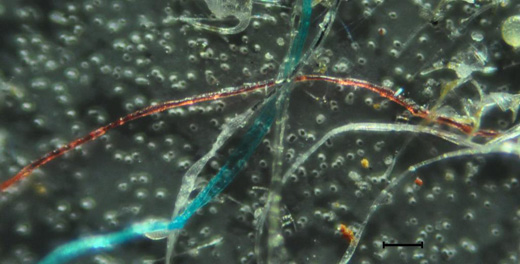Carbon Omissions Animation – In this provocative short animation, Guardian columnist George MONBIOT teams up with Leo Murray and green charity PIRC to explain the UK’s ‘carbon omissions’. Officially, UK carbon emissions have been falling for the past decade, but when you count the carbon outsourced to China and other countries, the UK’s emissions have actually gone up by around a fifth.
Month: October 2013
How to STOP all the effects of what human counterproductive activities have done to climate change the last 200 years?
“Carbon Dioxide Heats The Earth”. Newspaper article from 1932 pic.twitter.com/f23NePRh1l
@SenatorLudlam @angrygoat Do journals count? 1896: http://www.globalwarmingart.com/images/1/18/Arrhenius.pdf …
@SenatorLudlam No newspaper clipping, but this article is ref’d back to 1859 (see note #1) http://www.aip.org/history/climate/co2.htm … #norepeal #environment
City Deal for Thames Valley Berkshire Confirmed
Margot Tomkinson-Smith
Communications Manager for Thames Valley Berkshire LEP
City Deal for Thames Valley Berkshire Confirmed
On Monday 28 October 2013, Thames Valley Berkshire LEP welcomed the news that the Thames Valley Berkshire City Region has been successful in its City Deal bid.
The announcement was made by Greg Clark, Minister for Cities, at a special event held at Reading Town Hall, which was attended by Council Leaders and representatives from across Berkshire.
So-called ‘City Deals’ are special arrangements negotiated between Central Government and areas/cities, where they are given the powers and tools they need to drive local economic growth. Reading Borough Council was the lead authority in the region, driving forward the successful City Deal bid on behalf of Thames Valley Berkshire ‘City Region’.
The Thames Valley Berkshire City Deal centres around giving Berkshire’s young people the skills they need to access local job opportunities and helping local businesses to get the workforce they need to support growth. This includes both driving down the skills gap that exists which in some cases can mean young people are not accessing employment opportunities that may be available and working with businesses to increase the range of opportunities available.
A key part of the ‘Deal’ will be developing better pathways into work for young people through agencies working better and more collaboratively underpinned by an innovative new mobile web platform ‘ElevateMe’ that has been funded by O2 and developed with young people themselves.
Steve Lamb, Chair for Thames Valley Berkshire LEP added, “The Thames Valley Berkshire City Deal is a positive and exciting opportunity, not just for the local area, but also the sub region as it enhances ability to compete on a global level. It offers an unprecedented shift in control from Whitehall over the way in which our skills system works, so that we can make sure we have a highly skilled workforce which corresponds with business needs in Thames Valley Berkshire, for future growth and economic success.”
via Announcement from Thames Valley Berkshire LEP | LinkedIn.
CCCRdg response; “Consider Climate Change in every action”~Climate Change Centre Reading
EU Environment Briefing: ILUC, ETS, Emission Standards and Waste
Brussels Briefing on Environment: All you need to know for the month of October 2013
October 9, 2013 – Environment
In this latest Brussels Briefing on Environment, leading environment journalist Sonja van Renssen provides an overview of the latest developments in the field of EU Environment Policy.
Topics discussed include:
– Indirect Land Use Change (ILUC)
– European Emissions Standards for cars and vans
– Emissions Trading System
– Ban on F-Gasses
– Plastic waste and a Landfills ban proposal
Featuring statements by: Corinne Lepage MEP, ILUC Rapporteur and Jos Delbeke, Director-General for Climate Action at the European Commission.
via EU Environment Briefing: ILUC, ETS, Emission Standards and Waste.
As The World Tipped Trailer – Wired Aerial Theatre
The timing for their “Tipping Point” is perfect
More pics here: http://tinyurl.com/pppvnnx
Microscopic debris worries marine environmental scientists – IVL Swedish Environmental Research Institute
The problem of microscopic debris in the ocean is much greater than previously thought. Water samples taken in the harbour of Lysekil, by researchers from IVL Swedish Environmental Research Institute, contained 30 times more microscopic debris than previously measured in similar samples along the Swedish coast.
– The results are disturbing. Microscopic debris is not visible to the naked eye, but it can damage the marine wildlife to a larger extent than other debris, says Fredrik Norén, marine biologist at IVL.
Microscopic debris consists of small particles of plastic, textile and other kinds of waste, and since they are the same size as phytoplankton and zooplankton they will either be eaten by animals in the sea, or can adhere to the gills of fishes. The particles can also be carriers of toxic substances and that way transport environmental toxins into the animal that eats the debris.
The largest source of microscopic debris is not, as one could expect, marine transports or boats, but rather the debris from our cities. Debris thrown on our roads and streets will be transported by rainfalls towards the oceans and the problem exists in all cities where the currents will concentrate the debris at the water’s edge. The Swedish west coast is also the recipient of debris from other costal European cities and rivers, due to ocean currents.
– The way we live in the cities is a major source of the microscopic debris we now see in the sea. The good thing about that situation is that we as a society can do something about the problem. We can both improve our processes to treat storm water, as well as to educate people to throw less garbage in their urban environment. The municipalities can in turn increase the number of available garbage bins, says Fredrik Norén.
He is critical to how storm water currently is disposed along the Swedish west coast. There is too much microscopic debris that passes through the wastewater treatment plants and runs straight into the ocean.
– We need to do more studies on the debris that is currently slipping through the treatment plants filter and we must also develop new techniques for the treatment of storm water. There is plenty more to be done in this area, says Fredrik Norén.
For more information, contact: Fredrik Norén, fredrik.noren@ivl.se,
phone +46 31 708 65 05
Visit as well: http://www.n-research.se/forskning.php?id=1
via Microscopic debris worries marine environmental scientists – IVL Svenska Miljöinstitutet.



